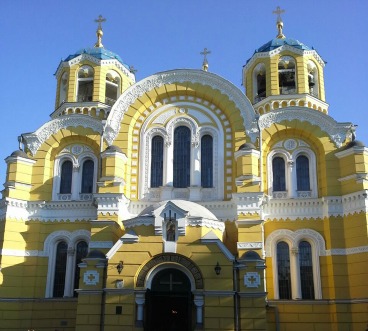Mr. Speaker, I rise in strong support of the Ukraine Support Act. I want to thank my friends and colleagues, Chairman Royce and Ranking Member Engel, for introducing this comprehensive legislation to support Ukraine in its urgent effort to meet its current crisis, including by building up its democratic institutions.
Mr. Speaker, Russia’s land grab in Crimea violates the core principles of several bilateral and multilateral agreements and treaties between Ukraine and Russia, the Budapest Memorandum, and the United Nations Charter, as well as the Helsinki Final Act. This legislation includes strong sanctions against Russians directly responsible for the aggression.
H.R. 4278 also authorizes targeted sanctions against Ukrainians involved in undermining the democratic processes and provides assistance to the Ukrainian Government for identifying and recovering stolen assets. It is, after all, these criminal officials, including and especially Yanukovych and his cronies, who have so harmed the Ukrainian people and placed the country in the vulnerable position which Russia has exploited.
Another key provision of the bill provides support for Ukraine’s democracy and civil society; and I want to here recognize the importance of supporting, as well, the faith-based groups and organizations that played such a prominent role, particularly on the humanitarian side, in supporting the movement for democracy and the rule of law.
The Ukrainian democracy movement is, in large part, a religious movement. Orthodox and Catholic clergy, for example, were prominent in the protests, and the drama of priests carrying icons confronting soldiers became as much a symbol of the democratization movement as anything else. And, again, when people were wounded and when people were being dragged away, it was the clergy that tried to step in to mitigate the violence against them.
Let me also point out a Catholic News Service article that just hit the wire that points out that members of the Ukrainian Catholic Church are fleeing Crimea to escape threats of arrest and property seizures.
Father Milchakovskyi, a parish rector in Crimea, said:
“The situation remains very serious, and we don’t know what will happen–the new government here is portraying us all as nationalists and extremists.”
The article also says:
“Officials from Russia’s Federal Security Service, or FSB, had called him in for questioning about his community and to ask whether or not he “recognized the new order.””
He pointed out that one priest in particular was actually beaten by Russian forces. And, again, Members will recall, and I remember during the 1980s when I first came here, how so many within the church, including the orthodox church, were beaten and sent to the gulag because of their religious faith. This could be the harbinger of a new wave of repression against people of faith. The Ukrainian Catholic Church, by way of reminder, was one of those churches that was outlawed during Soviet times, and now we see the same kind of repetition of that kind of repression.
This legislation is a clear step in the right direction. No piece of legislation will do it all. We have to appeal to the Russians to stop this, but, again, to cease their persecution of people in the Crimea.









